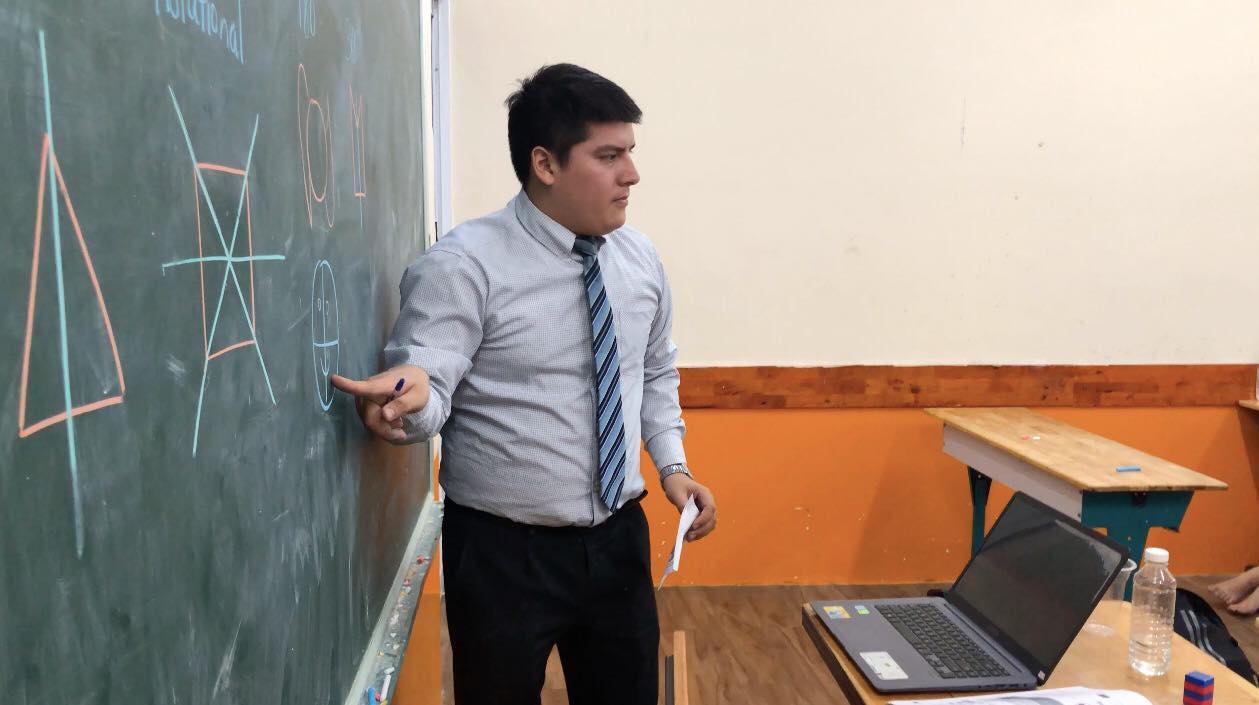It was after Vietnam’s Tet (Lunar New Year) holiday, which ended in early February, that French lecturer Camille Q. returned from a vacation in France, only to be informed she would not be able to be reunited with her students due to school closures caused by novel coronavirus disease (COVID-19).
Camille, who works at a university in the southern province of Tra Vinh, was told that closure was part of a nationwide plan to shutter schools across the country in order to prevent the spread of COVID-19.
What no one could have guessed, however, was that the closures would be repeatedly extended, forcing her and thousands of other teachers to adapt to their new realities.
“I was very surprised because I didn't think the situation was so bad, although now I feel it was the best decision [for the government] to make,” the 29-year-old lecturer shared.
“I was disappointed and a bit sad because I hadn't had class since December,” she added. “I was in France for the holidays and I was looking forward to seeing my students again.”
In just a few short weeks, her school was able to move its classes online, first offering documents, worksheets, and quizzes over the Internet for students to study, then switching to real-time online learning in late March.
"It was difficult because of Internet issues which made me unable to hear or see my students, but it was still nice to interact with them again,” Camille said.
Still, despite having to adapt, the French lecturer is “very happy to see that Vietnam is handling this crisis very well, and that the university is making efforts for students to continue learning.”
'Can't wait to see my students again'
South African Sandra Swanepoel, a math teacher at an international school in Ho Chi Minh City, has had to adapt to school closures.
Swanepoel spends five mornings a week in front of her computer, a routine she will likely maintain until at least early May, when authorities tentatively hope to reopen educational institutions en masse.
Shortly after her school’s first extension of its Tet holiday break due to COVID-19, its teachers began sending students assignments to complete at home.
“Then, when the second extension was announced, we immediately started teaching online,” Swanepoel recalled.
“I am an old teacher and I have never done this before, but it was a case of 'jump in and swim’.”
According to Swanepoel, online education is a combination of “things that are amazing, but also things that we hate. But like we all say: it is better than nothing.”
The learning curve to provide engaging online has been a steep one, but Swanepoel and her colleagues are breaching it together.
“Older teachers [at my school] had to find ways around problems and share the solutions with each other in order to teach better online.”
Above all, the desire to see colleagues and students in real life seems to be the hardest challenge to overcome.
“I have yet to meet a real teacher that is not saying, ‘I can't wait to see my students again, even the naughty ones,’ she said.
“This virus has changed all our lives. Suddenly we’re all in a totally different environment and it’s difficult to get used to it."
Since making the switch to online teaching, Swanepoel has found ways to combine her passion for mathematics and probability with the current situation.
One of her favorite activities has been working with her students to make educated estimates on when schools will reopen.
“We haven't been successful thus far, [but] the students were amazed by how relevant math actually is!” Swanepoel shared, adding that the online contact with her students has helped make the situation considerably more bearable.
Another math teacher working in the southern metropolis, Colombian German Narvaez, shares Swanepoel’s sentiment about online contact with students.
Narvaez is currently an elementary and secondary school teacher at a bilingual school in Tan Binh District.
Though he is still being paid, Navarez is caught between worrying about his family’s finances and being thankful for the government’s efforts to keep residents safe.
“If I’m healthy, I can still work. If my family is healthy and alive, we can still recover from COVID-19 economic damage,” he said.
“I know it’s hard for teachers and school staff to make a living during this time, but I recognize that no matter how much money I have in my account, the safety of people is much more important.
“I still feel proud of the Vietnamese government for keeping up with such difficult measures, but it's for everyone’s health. I still think it’s the best decision."
Meanwhile, John Dewhirst from the UK said he understands why schools have to be shut, despite his hopes that things soon turn back to normal.
“Many teachers only get paid when they work, so when they aren’t working, they don’t get paid,” Dewhirst, an English teacher at a language center, explained.
“However, our center has been good at offering online classes for us to teach so we’re able to earn some money if we teach those classes.”
|
|
| John Dewhirst (L) is seen with his students in a photo he provided Tuoi Tre News, taken before the COVID-19 epidemic caused schools and educational institutions in Vietnam to close. |
The school closures have affected Dewhirst’s life in a big way, considering he has lost nearly all of his income over the past three months.
However, the time off from teaching has been a blessing in disguise for Dewhirst, granting him some much needed time to work on his YouTube channel, VNYO, about Vietnam.
Leaning on savings
Other expat teachers, however, are finding it a serious struggle to make ends meet.
“Teachers working hourly at local centers are the ones struggling the most because they have no kind of insurance to guard against this situation,” Narvaez said.
“Many of them have had to leave the country or try to stretch their savings to make it last as long as possible.”
Michael, another teacher from France who worked at a private school in south-central Vietnam’s Phan Thiet City, said he has not been working over the past three months.
"My first feelings when I heard about the school closures were frustrations and anger because I was stuck in this out-of-control incident,” he recalled.
“The school said the situation was very bad and that students could not come to class. They also said they couldn’t pay us. For the past three months, I’ve had to live off my savings.”
Seeing Michael struggling to make a living, his landlord offered to exempt him from paying his VND5 million (US$211) rent this month.
However, he still plans to pay half of it, calling the offer “too generous.”
“Due to social distancing, I could temporarily stop paying my sports fee of VND500,000 [$21] per month, so between that and paying half my rent I can save VND3 million [$127],” he said.
However, the French national admitted that he is nearing the end of his bank account.
“I don’t want to have to go out on the street and ask for people’s help. I love my job and I want to work,” he asserted.
Michael said he has tried to work online but he failed to get a job due to competition with native teachers from the UK and the U.S.
Meanwhile, in the southern city of Can Tho, English teacher David James shared that the school closure request has put the English center where he was working in financial troubles.
In the two weeks after Tet, the center cut 50 percent of its teachers' salary.
After that, the center terminated contracts with all three of its foreign teachers, including James.
The man from the UK recalled that the financial burden was not very heavy at first, however things are getting worse by the day.
Although he is still teaching online through a Chinese company, the low income he earns from teaching a few hours a week is not enough to support his life.
Moreover, the online teaching market is becoming more competitive than ever as teachers who lost their jobs from English centers have been using it to find an alternative source of income.
James hopes things to be back to normal soon.
If not, he has to consider returning to the UK before his savings run out.
Like us on Facebook or follow us on Twitter to get the latest news about Vietnam!





















































